The opioid crisis is causing far more damage beyond overdose deaths and increasing addiction rates. Drug addiction has had a profound effect on American families in every state. Every community has unique concerns when it comes to the opioid crisis, and American teachers are quickly becoming one of the most important forces of positive support in the country.
How American Teachers Are Stepping Up To Face The Effects Of The Opioid Crisis
The effects of drug addiction on a family may go unnoticed by outsiders. It’s difficult to tell the difference between a child suffering from the effects of addiction at home and the typical growing pains of the school-age years. However, American teachers are witnessing the effects of addiction on American children firsthand. More students are living in poverty and broken families than ever before, largely due to the ongoing opioid crisis. This makes teachers an important source of support for many American youths.
Families Fractured By Drug Abuse
Addiction takes a toll on a family. A parent with a substance abuse disorder will eventually deteriorate without intervention, and his or her children are likely to suffer the most when this happens. There are countless ways that drug abuse can harm a family, but children bear the brunt of this damage and often carry the scars for the rest of their lives. Addiction can also separate a child from his or her parents during the time parents are needed most; during the early years and school-age years.
Children In Foster Care And Poverty
Many areas across the country have been reporting higher entrance rates into the foster care system since the opioid epidemic started picking up steam. When a parent neglects financial responsibilities or endangers a child, the state intervenes and will typically place the child with a foster family or relative if possible. Ultimately, the state has a legal duty to rule in favor of the best interests of any children involved in any case.
Many parents have lost homes, custody, and even visitation rights due to substance abuse. Some go years without any contact. While there are plenty of avenues the government may take to separate a child from a potentially harmful parent, there are very few channels for reuniting families once a parent overcomes addiction.
Abuse And Neglect From Addiction
Drug abuse can lead to seriously damaging effects for any family. Some children have suffered physical and sexual abuse at the hands of addicted parents and relatives. Others have been trafficked to pay for a parent’s addiction. Many face neglect, homelessness, and poverty due to their parents’ habits and may come to school tired, hungry, and wearing filthy clothes.
Children who experience poverty, abuse, and/or neglect at young ages typically display significant behavioral and psychological distress for years to come. Seeing drug abuse firsthand at home can be traumatic and drastically impact a child’s outlook on the world. Children from fractured homes and those who go through the foster care system generally face a higher risk of developing substance abuse disorders themselves as well.
West Virginia Teacher Addresses Student Poverty
A recent Huffington Post report* covered the story of Gary Cruey, a middle school teacher in War, West Virginia, one of the areas of the country most acutely affected by the opioid epidemic. While the rate of foster care admissions in 2016 was 369 per 100,000 children, the rate in West Virginia skyrocketed to 1,221 per 100,000 children. Cruey reports that as many as half of the students he teaches live in foster care, with one parent, or another relative.
In 2014, McDowell County had the highest opioid-related hospitalization rate in the state, and West Virginia already reported significantly higher opioid abuse statistics than most other states. Cruey also reported that about 40% of middle school students in his district have individualized lesson plans or participate in special education. He attributes this spike in special education needs to the number of pregnant mothers abusing drugs in the area.
Long-Term Damage For Children Of Addicted Parents
The children who witness drug abuse at home often experience severe trauma. Even the children lucky enough to avoid physical and sexual abuse may still come home to find a parent dead from an overdose, eviction from unpaid rent, or a sudden removal from his or her home and foster care placement. The efficacy and safety of the U.S. foster care system has also been a hot topic of debate in recent years due to the increasing number of reports of abuse at the hands of foster parents and poor vetting practices in foster care services. Essentially, there is no guarantee that a child removed from his or her family home due to substance abuse will benefit in any way from foster care placement.
Overcoming trauma is difficult for anyone, but children lack the self-awareness of adults and may not be able to make sense of their environments. This leads to trouble learning, problems socializing, and an increased risk of drug abuse and criminal activity later in life. Teachers can play an important role in helping children in need by stepping outside their role as educators and offering support however they can. While this is an undue burden on American teachers whose job it is to simply teach, many undertake this burden because they want the best for their students and feel compelled to help however possible.
Finding Hope In Recovery
The resources available for fighting the ongoing opioid crisis are very limited, and while state and federal policymakers have made significant strides toward improving access to treatment and boosting the effectiveness of available treatments, there has been little progress in the way of improving the lives of children affected by substance abuse.
Echo Recovery offers a full range of substance abuse treatment services, including support for families struggling with homelessness. Learn more about the housing services we can provide and consider how you can start rebuilding in recovery.

Experienced Chief Executive Addiction Recovery and Mental Health Professional
Business professional in the Addiction Recovery and Mental Health industry for the past 26 years. Caring, compassionate and strongly motivated to make a difference in the organizations I am affiliated with and welfare of the population we serve. Currently focused on advocating, educating and developing projects leveraging evidence based, real time technology to support individuals in recovery.

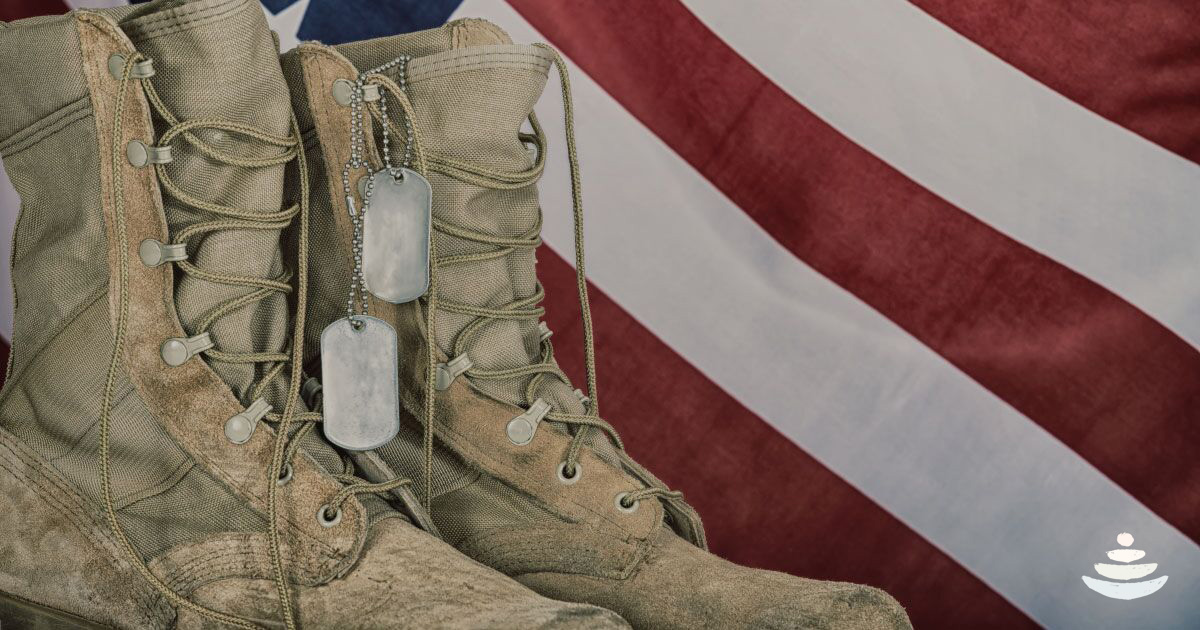
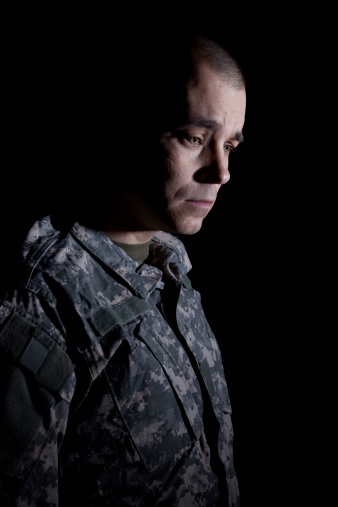
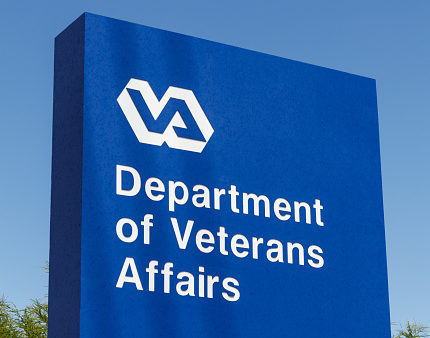
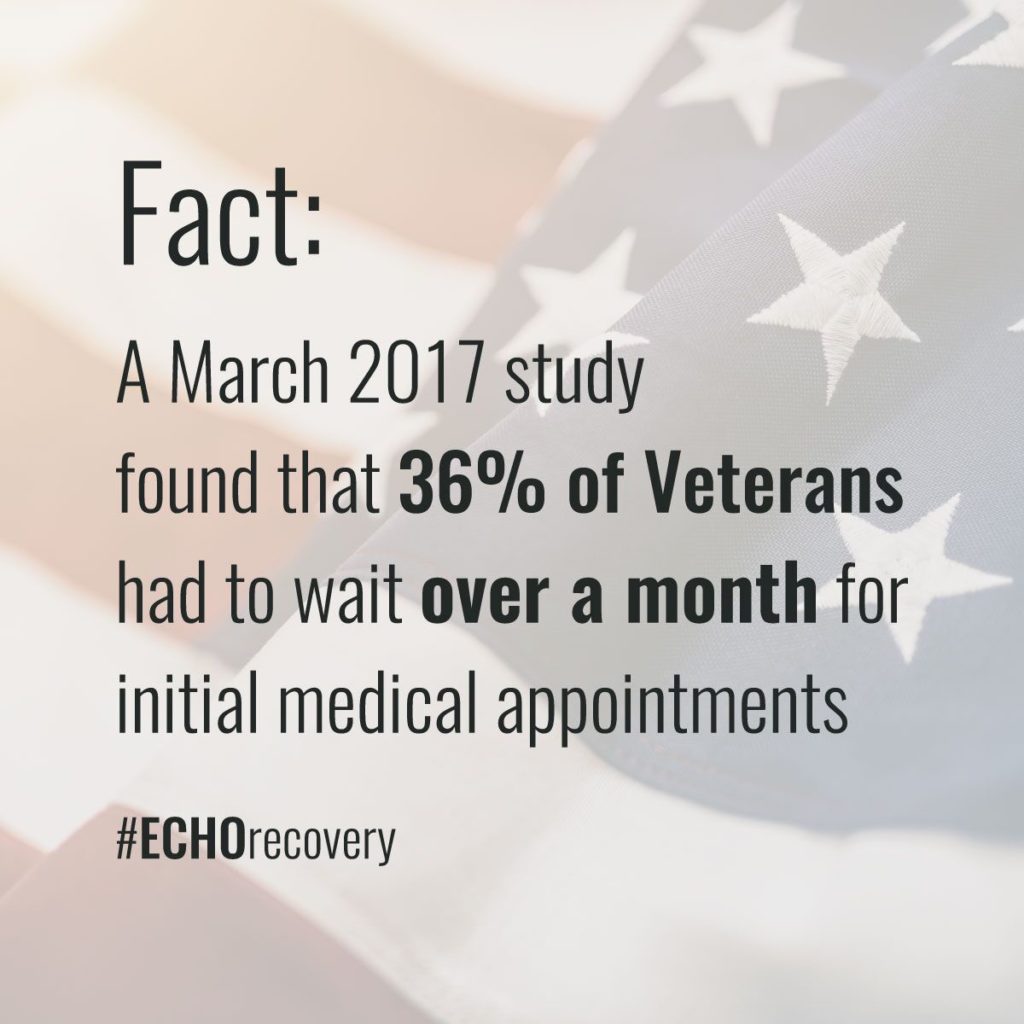

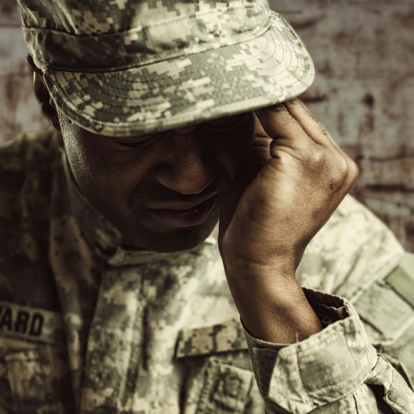 Just as our servicemen and women have fought for freedom abroad, it is up to us to help fight for their well-being here at home. While there’s not a single solution to the problems that plague the VA medical system, our country can find solutions when concerned citizens take an interest.
Just as our servicemen and women have fought for freedom abroad, it is up to us to help fight for their well-being here at home. While there’s not a single solution to the problems that plague the VA medical system, our country can find solutions when concerned citizens take an interest.
